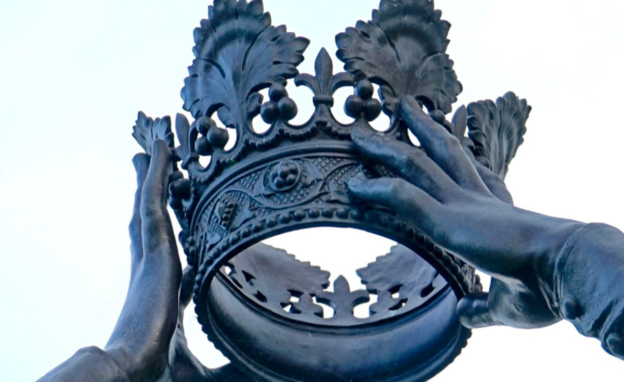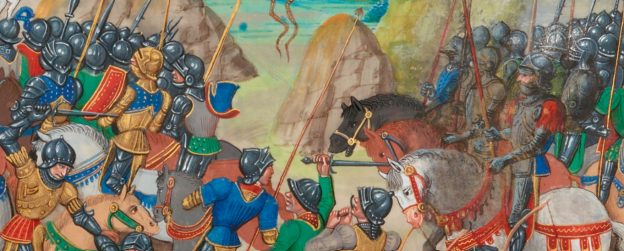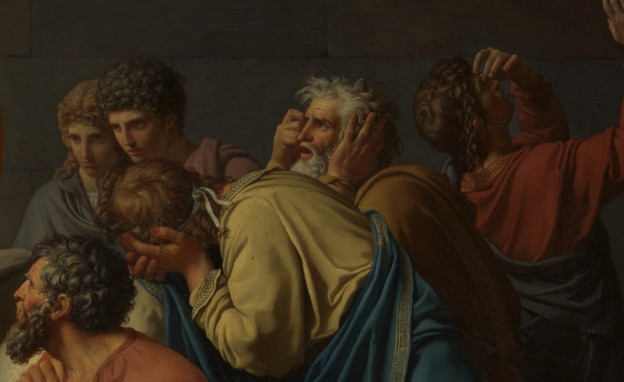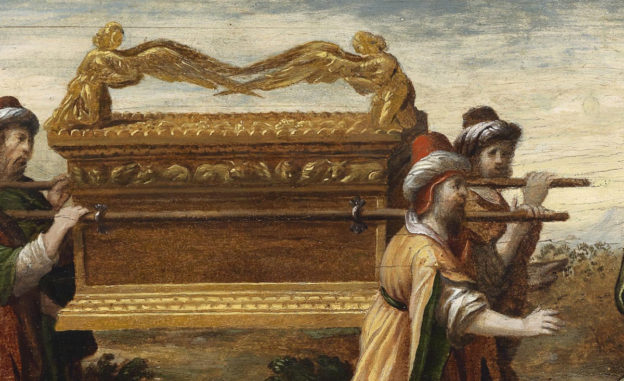Sometimes in life someone starts out well, and looks suitable to the job. Unfortunately, after a while, they make a mistake. Maybe one that seems little, but it has big consequences. Through that, they show their unsuitability for the role.
In this passage, Saul demonstrated his unsuitability as King over Israel. While Saul started out in tentative obedience to God’s commands, his unlawful sacrifice showed he was unable to obey God even in trying times, and another would have to be sought. His disobedience led to dire straits for Israel, one which God would dig Israel out of, just as God has dug us out of our own dire straits.
The passage begins with an unusual reference to Saul having “lived for one year and then became king” (v.1) which has resulted in a lot of spilt ink trying to work out what happened. One possible suggestion is to understand verse one as saying that a year after Saul’s anointing, two years of events occurred in this and the two following chapters, which was the period in which Saul was legitimately king before being rejected by God.
Saul was finally going to take action against the Philistines, who had been a thorn in Israel’s side for a good hundred years. Saul established a small standing army, led by himself and his son Jonathan, and dismissed the “citizen militia” to their homes (v.2). Following this, Jonathan and his regiment attacked a Philistine garrison at Geba (v.3).
The Philistines noticed this attack, and roused themselves for battle. Saul himself called for mobilisation at Gilgal (vv.3-4). The Philistine response was a massive military force designed to crush Israel once and for all (v.5).
Seeing this horde amass, Israel fled and hid in caves or across the Jordan (vv.6-7). Saul and his soldiers were abandoned.
Saul waited with his forces for seven days at Gilgal until Samuel arrived (v.8, cf. 10:8). This must have been a very long seven days, as a Philistine horde approached and his forces started to slip away in fear.
From an earthly perspective we can sympathise with Saul, but this trial was a test of his faith in God. The response of faith was to wait and trust in God, the same God who had littered Israel’s history with deliverances.
Unfortunately, Saul failed the test and took matters into his own hands when he “offered the burnt offering” (v.9) to God which only a priest (like Samuel) could offer. Immediately, Samuel appeared on the horizon (v.10). Samuel collared Saul and asked “What have you done?” (v.11).
The response reeked of cloaking his sin in religious fervour and blame shifting to Samuel for being late to work (vv.11-12).
Unfortunately, Saul’s acts were roundly condemned by Samuel. He had acted foolishly, disobeying God’s clear commands, and demonstrated his character (v.13). He had failed the kingly grade by not leading under God’s direction. God would seek “a man after his own heart” to replace Saul’s dynasty (v.14). Samuel upped and left, apparently leaving no guidance (v.15).
Saul left with his men to Gibeah, finding only six hundred left (v.15). Meanwhile the Philistines encamped at Michmash, with three companies detailed to subdue Israel’s population (vv.16-18).
The Philistines had tightened their grip, reducing Israel to serfdom. Blacksmiths who could forge weapons were removed from Israel (v.19). Any Israelites needing a replacement tool had to head to a Philistine town, where they paid a hefty fee (vv.20-21).
So Saul and his son Jonathan, and the pitiful remnants of the Israelite army, were encamped at the garrison of Geba, cut off from the rest of Israel by a massive Philistine army. Only Saul and Jonathan had a sword or spear, the rest of their forces reduced to makeshift weapons (v.22). And the Philistines were on the move (v.23).
A good thing God would still intervene.
This passage shows us the importance of obeying God’s Word. A good attempt, or something looking generally like the standard might pass in a class, but not when it comes to God. Our obedience must be perfect, exact, entire, and complete. Obeying God’s Word is obeying God. Even if it means (spiritual) conflict with the world.
While we can sympathise with Saul’s position, and even in times of distress compromise on God’s commands or adjust them to pragmatically suit the situation, this is not an excuse. Not even when it seems like God is running late, by our timing.
Worse still, disobeying God’s Word leads us away from the very means by which God leads us. Samuel was left without any guidance from Samuel, because of his disobedience. When we refuse to follow God’s Word, we are just as foolish as he was, stumbling around in the darkness.
Thankfully, while we find ourselves in dire straits, with enemies surrounding us and no strength in ourselves, God found a man after his own heart to rescue us. Jesus passed the grade that Saul failed, and sacrificed his life to save ours.






